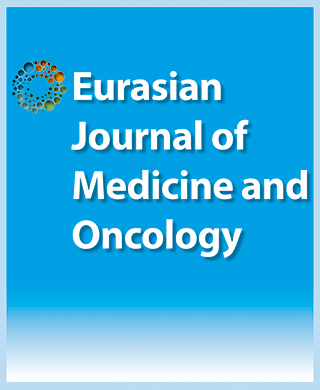

Correlation between miR-27 rs895819 and miR-423 rs6505162 Polymorphisms and Susceptibility to Colorectal Cancer in the Iranian Population: A Case-Control Study
Abolhasan Alijanpour1, Amirhosein Naseri2, Maedeh Barahman3, Somaye Miri4, Faezeh Firouzi5, Ahmad Shirinzadeh-Dastgiri61Department of General Surgery, Babol University of Medical Sciences, Babol, Iran, 2Department of Colorectal Surgery, Imam Reza Hospital, AJA University of Medical Sciences, Tehran, Iran, 3Department of Radiation Oncology, Firoozgar Clinical Research Development Center, Iran University of Medical Sciences, Tehran, Iran, 4Department of Biology, Ashkezar Branch, Islamic Azad University, Ashkezar, Iran, 5Department of Pathology, West Nikan Hospital, Iran University of Medical Sciences, Tehran, Iran, 6Department of Surgery, Faculty of Medicine, Shohadaye Haft-e Tir Hospital, Iran University of Medical Sciences, Tehran, Iran,
Objectives: MicroRNAs play a vital role in biological processes, and their irregularities have been associated with colorec tal cancer (CRC) development. This study utilized a case-control method to investigate the possible link between two particular miRNA variations, mir-27a rs895819 and mir-423 rs6505162, and CRC susceptibility in the Iranian population. Methods: This case-control study included 120 CRC patients and 120 healthy individuals. Genotyping of the mir-27a rs895819 and mir-423 rs6505162 polymorphisms was performed using the PCR-RFLP method. The odds ratio (OR) and 95% confidence interval (95% CI) were calculated to evaluate the correlations. Results: No significant disparities were detected between the cases and controls regarding age, gender, BMI, family history of CRC, and residency. The analysis indicated that the GG genotype of the mir-27a rs895819 polymorphism was notably linked to a higher CRC risk (OR=2.134, 95% CI 1.008-4.517, p=0.048). Nevertheless, no substantial connection was noted between the mir-423 rs6505162 polymorphism and CRC susceptibility. Conclusion: The study results indicate that the mir-27a rs895819 polymorphism could serve as a potential biomarker for CRC progression. However, no correlation was found for the mir-423 rs6505162 polymorphism. Further research with diverse ethnic groups and larger sample sizes is necessary to confirm the link between these polymorphisms and CRC development Keywords: Colorectal neoplasms, MicroRNAs, mir-27a, mir-423, polymorphism
Cite This Article
Alijanpour A, Naseri A, Barahman M, Miri S, Firouzi F, Shirinzadeh-Dastgiri A. Correlation between miR-27 rs895819 and miR-423 rs6505162 Polymorphisms and Susceptibility to Colorectal Cancer in the Iranian Population: A Case-Control Study. EJMO. 2024; 8(3): 348-357
Corresponding Author: Maedeh Barahman



